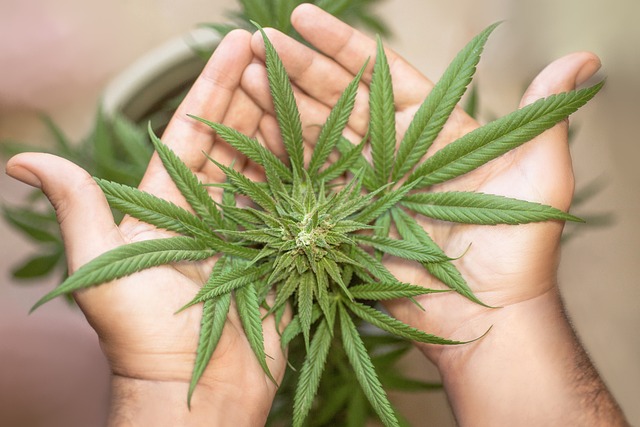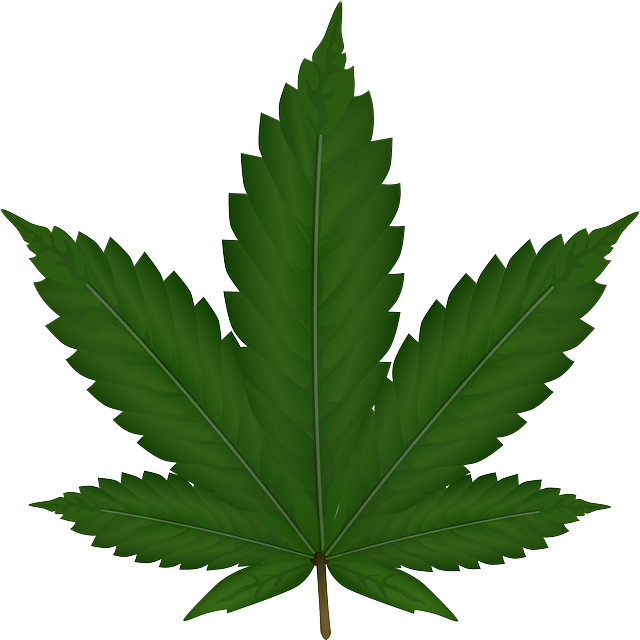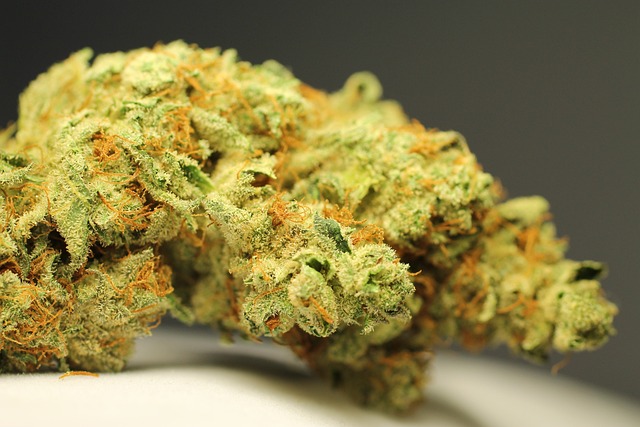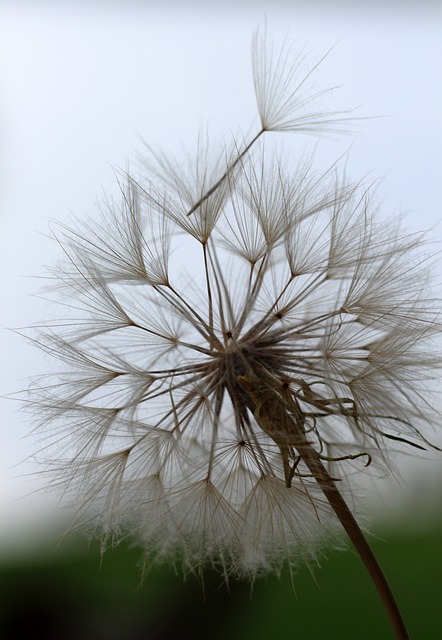The THCA flower, a non-psychoactive compound found in raw cannabis plants, is gaining attention for its anti-inflammatory properties. Unlike its psychoactive counterpart THC, THCA offers these benefits without inducing a high, making it a potential natural solution for immune response regulation, particularly in chronic inflammation conditions. Studies reveal that THCA's anti-inflammatory effects stem from its ability to target pro-inflammatory cytokines and enzymes involved in the inflammatory process. Additionally, THCA synergizes with other cannabinoids and terpenes within the flower, enhancing its therapeutic potential. This combination has piqued the interest of researchers and health practitioners for its anti-inflammatory effects, with ongoing exploration into its wellness and health applications. The promise of THCA as a non-psychoactive alternative to traditional anti-inflammatory drugs with potentially fewer side effects is compelling, prompting further scientific investigation. Consumers interested in the anti-inflammatory benefits of THCA are advised to source high-quality flower from reliable cultivators who practice organic methods and adhere to rigorous quality control standards, ensuring lab-tested products free from contaminants for a safe and effective experience.
Explore the intricate world of THCA flower, a botanical marvel with burgeoning recognition for its anti-inflammatory effects. This comprehensive article delves into the multifaceted aspects of THCA flower, from its scientific properties to its potential applications in therapeutic health protocols. We will navigate through the complexities of sourcing high-quality THCA flower, understand how it interacts with the body’s systems, and explore cultivation techniques that enhance its potency. Join us as we dissect the role of terpenes and flavonoids within the entourage effect, compare THCA to other cannabinoid forms, and examine clinical studies that underscore its anti-inflammatory impact. This exploration will also touch on legal considerations, patient experiences, and future research avenues, providing a well-rounded perspective on this emerging therapeutic option.
- Unveiling THCA Flower: A Botanical Overview
- The Science Behind THCA's Anti-Inflammatory Properties
- Sourcing High-Quality THCA Flower for Optimal Effects
- THCA Flower's Role in Inflammation and Disease
Unveiling THCA Flower: A Botanical Overview

The THCA flower, or tetrahydrocannabinolic acid flower, stands as a significant botanical curiosity within the cannabis plant family. Unlike its more famous derivative, THC, THCA exists naturally in raw cannabis plants and possesses a distinct set of properties. This cannabinoid is non-psychoactive, meaning it interacts with the body’s endocannabinoid system without inducing a high. One of the notable benefits of THCA is its potential anti-inflammatory effects. Research suggests that THCA may exert its anti-inflammatory action through various pathways, including the suppression of pro-inflammatory cytokines and enzymes involved in inflammation. This makes THCA a subject of interest for those exploring natural ways to modulate immune responses, particularly in conditions where chronic inflammation is a hallmark. The anti-inflammatory potential of THCA is not limited to its direct interaction with the endocannabinoid system; it also synergizes with other cannabinoids and terpenes found within the flower, enhancing its overall therapeutic profile. As such, THCA flower has garnered attention from researchers and practitioners interested in harnessing its natural compounds for wellness and health applications.
The Science Behind THCA's Anti-Inflammatory Properties

THCA, or tetrahydrocannabinolic acid, is a naturally occurring compound found in the cannabis plant that has garnered attention for its potential health benefits, particularly its anti-inflammatory effects. These properties are rooted in THCA’s interaction with the body’s endocannabinoid system, a complex network involved in regulating a range of physiological processes, including pain, immune response, and inflammation. Studies have shown that THCA can inhibit certain enzymes associated with inflammatory responses, suggesting its potential as a natural anti-inflammatory agent without the psychoactive effects present in its decarboxylated form, THC. Research indicates that THCA’s anti-inflammatory effects may be attributed to its ability to modulate the activity of key immune cells and cytokines, which are signaling proteins involved in cellular communication and immune reactions. This regulatory action could have significant implications for managing inflammatory conditions without the side effects commonly associated with conventional anti-inflammatory drugs. The THCA flower, in its raw state, is a source of these potential benefits, offering an alternative approach to treating inflammation that merits further scientific exploration and clinical investigation.
Sourcing High-Quality THCA Flower for Optimal Effects

sourcing high-quality THCA flower is a critical step for those looking to explore the potential anti-inflammatory effects associated with this cannabinoid. Unlike its more famous counterpart, THC, THCA exists in raw cannabis plants and doesn’t induce psychoactive effects, making it an attractive option for individuals sensitive to THC or seeking specific wellness benefits without intoxication. When sourcing THCA flower, it’s imperative to choose reputable cultivators who prioritize organic growing practices to ensure the purity and potency of the compound. Optimal effects are contingent on the plant’s terroir, strain selection, and the care taken from cultivation to packaging. Consumers should look for strains known for their high THCA content and notable anti-inflammatory effects, which can be determined through third-party lab testing results. This due diligence not only guarantees a product rich in THCA but also ensures that it is free from contaminants, providing a safe and effective experience. Additionally, purchasing from licensed dispensaries or directly from trusted farms that adhere to strict quality control standards can offer peace of mind and maximize the potential therapeutic properties of the THCA flower.
THCA Flower's Role in Inflammation and Disease

betahistidine decarboxylase enzyme converts THCA into THC, which is psychoactive. However, in its raw form, THCA has been observed to possess potent anti-inflammatory properties. Studies have indicated that THCA may effectively modulate the body’s immune response and reduce inflammation by targeting key molecules involved in the inflammatory process. This non-psychoactive cannabinoid is believed to interact with the body’s endocannabinoid system, particularly the CB2 receptors, which are predominantly found on immune cells. By activating these receptors, THCA may help alleviate symptoms associated with inflammatory conditions, suggesting a promising therapeutic potential in diseases characterized by excessive inflammation.
The anti-inflammatory effects of THCA flower have been the subject of numerous preclinical trials, which have shown its ability to inhibit pro-inflammatory cytokines and enzymes without the psychoactive side effects associated with its decarboxylated counterpart, THC. These findings are particularly significant given the role of chronic inflammation in a wide array of diseases, including rheumatoid arthritis, inflammatory bowel disease, multiple sclerosis, and certain types of cancer. As research continues to evolve, the potential applications of THCA flower for managing inflammation-related conditions are becoming increasingly apparent.
The exploration of THCA flower reveals its promising potential as a natural anti-inflammatory agent. This article has delved into the botanical characteristics of THCA flower, elucidated the scientific basis for its anti-inflammatory effects, and offered guidance on sourcing high-quality THCA flower to harness these benefits. The concluding evidence from various studies underscores the significance of THCA flower in addressing inflammation and related conditions. As research continues to evolve, the utility of THCA flower in health and wellness practices is becoming increasingly evident. This botanical compound offers a promising avenue for those seeking natural alternatives for managing inflammatory responses, highlighting its role as a valuable addition to the therapeutic landscape.
